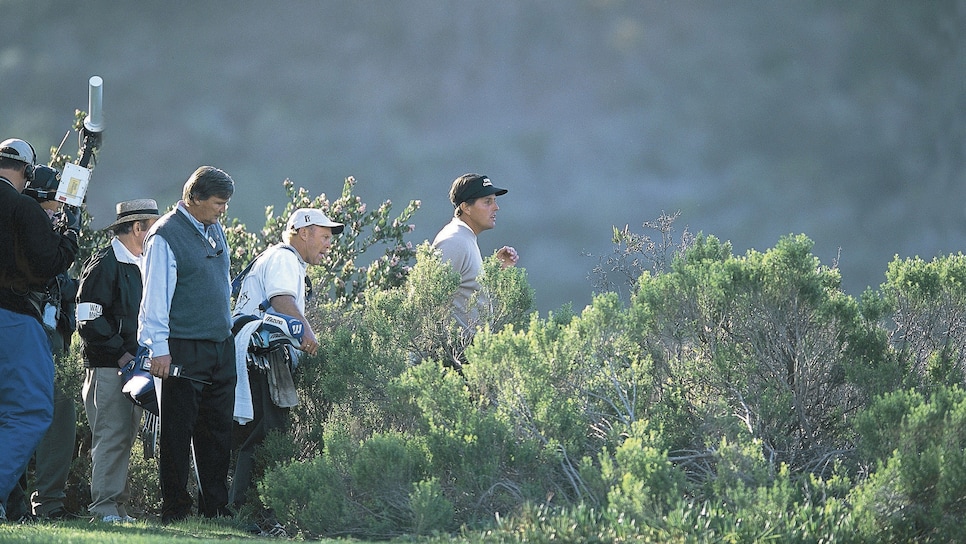Let’s begin with a hypothetical, but one we’re guessing might have happened at some point in your life as a golfer:
Say you hit a really bad shot on a par 3. You saw it land in-bounds and not in a penalty area, so you know it’s technically in play. And you know approximately where it is. But you also know that trying to hit your next shot from that position would be a nightmare.
This is the classic scenario in which you might just “wish” your ball was lost, since the stroke-and-distance penalty that comes with might be your best outcome. So, maybe you’re inclined not to look very hard, if at all, for the ball. Or even declare it lost after only a minute or so of half-hearted “searching”.
Unfortunately, according to the Rules of Golf, a ball is not officially lost until a player, his or her caddie or partner searches for it for a full three minutes. And if someone finds it within the three-minute search period – even if you desperately don’t want them to – before you make a stroke with another ball, that ball is still in play.
Hard core PGA Tour fans might remember when something along these lines happening to Phil Mickelson on the PGA Tour. Back at the 2001 Buick Invitational at Torrey Pines, Mickelson was in a playoff with Frank Lickliter II. On the third playoff hole, the par-4 17th on the South course, Mickelson hit a wayward drive left into a canyon. But so did Lickliter. Both players proceeded to hit provisional balls that landed in the fairway.
Lickliter went to look for his original ball and found it in a horrible spot. But finding it meant that his provisional was no longer an option. And the spot was so horrible that he declared the lie unplayable. Unable to take a drop near where his ball had come to rest that also wouldn’t be unplayable, Lickliter returned to the tee to hit what would become his third shot.

Unfortunately for Mickelson, a marshal, thinking he was helping the situation, searched for Mickelson’s ball in the canyon and found it. Mickelson was caught by the TV cameras frustratingly saying: “You kiddin’ me? Didn’t I ask you guys not to look?”
In turn both players hit their third shots off the tee. Mickelson eventually made double-bogey 6, but still won the playoff when Lickliter three-putted from eight feet for a triple.
Interestingly, there was a time when the Rules of Golf allowed a player to declare a ball lost without searching for it, but the latest edition of the book is very clear about what is lost and what isn’t.
So what should you do if you don’t want to find that tee shot? Simple. Take a stroke-and-distance penalty and play your third before leaving the tee (Rule 18.1). Just don’t declare it a provisional ball, however. That way, even if you see your original, you’re not required to play it.
MORE GOLF DIGEST RULES REVIEWS:
I’m on the green, my opponent is not. Who’s away?
Is sneaking a peek in another player’s bag considered getting advice?
What do I do if my golf ball is stuck in a tree?
I conceded a putt. My opponent putted anyway and missed. Is that a penalty?
What is casual water and how do I play around it?
I thought my ball was lost and put another in play then found my first ball… which ball counts?
What happens if I can’t tell my provisional ball from my original?
What exactly is an embedded ball?
How do I find my ‘nearest point of relief’?
How long can I take to hit a shot?
Does a ball have to be unplayable to declare it unplayable?
